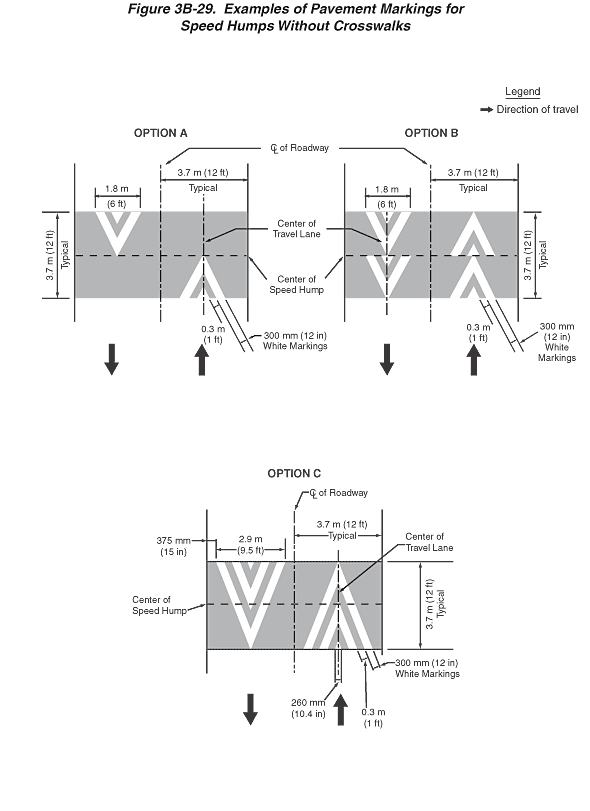
Figure 3B-29. Examples of Pavement Markings for Speed Humps Without Crosswalks
This figure illustrates three examples of pavement markings for speed humps without crosswalks.
The markings are shown as white "v" shaped markings inside a second "v" shape. Speed humps are shown with a dimension (noted as "typical") of 3.7 m (12 ft) longitudinally across both lanes of a two-lane two-way roadway. The travel lanes are each shown as 3.7 m (12 ft) wide, and this width is denoted as "typical." The "v" shaped markings are shown as centered in each travel lane, with the point of each "v" pointing in the direction of traffic flow in the lane. The lines making the "v" are shown at a dimension of 300 mm (12 in) wide. The space between the two sets of "v" markings is shown at a dimensioned distance of 0.3 m (1 ft) wide. A legend shows a black arrow indicating the direction of travel in the lanes.
The figure shows options A, B, and C:
- Option A shows a two-lane roadway segment with arrows indicating one lane of travel in each direction. One speed hump marking is shown on the pavement in each direction, with the base of the "v" shown at the near edge of the speed hump and the point of the "v" shown at the center of the speed hump. The marking is shown as 1.8 m (6 ft) wide at the base of the "v."
- Option B shows a two-lane roadway segment with arrows indicating one lane of travel in each direction. Two speed hump markings are shown on the pavement in each direction, with the base of the first "v" shown at the near edge of the speed hump and the point of that first "v" shown at the center of the speed hump. The base of another "v" is shown beginning at the center of the speed hump with the point of that second "v" ending at the far edge of the hump. The markings are shown as 1.8 m (6 ft) wide at the base of the "v."
- Option C shows a two-lane roadway segment with arrows indicating one lane of travel in each direction. A larger speed hump marking is shown as 2.9 m (9.5 ft) wide at the base of the "v." The marking is shown as a dimension of 375 mm (15 in) from each edge of the travel lane. One speed hump marking is shown in each direction, with the base of the "v" shown at the near edge of the speed hump and the point of the space between the inside and outside "v" lines shown at the center of the speed hump and the point of the outside "v" shown as ending at the far edge of the speed hump. The width of the point of the innermost "v" line at the near edge of the hump is shown as a dimension of 260 mm (10.4 in).
